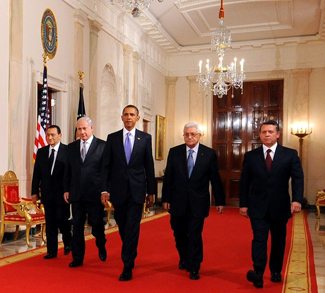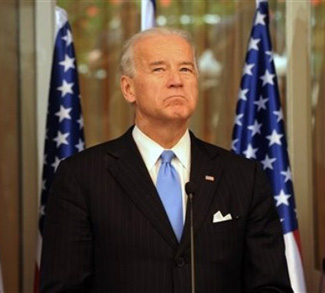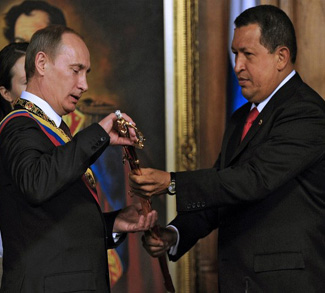FORECAST
While this latest round of talks is scheduled to continue on September 15th, judging from comments coming out of both camps, the negotiations have already failed.
Regardless of one’s views on the earnestness of Prime Minister Benjamin Netanyahu’s latest attempt to achieve peace with the Palestinians, this past week has proved that important elements of his support base not only don’t want the process to succeed; they think the talks shouldn’t even be taking place. No one captures this dynamic better than Foreign Minister Avigdor Lieberman, who has used the opportunity of peace talks to sink a dagger into the government which his party belongs to. On Sunday, Lieberman told a group of supporters that a peace deal is ‘unachievable’ and that Israel had suffered enough from the “adventures and experiments of irresponsible politicians.” The fragile nature of the Netanyahu coalition has been laid bare, and it can be assumed that Lieberman will continue to do everything in his power to raise the political profile of his Israel Beiteinu party to the detriment of the Netanyahu government and the peace process.
It should thus come as no surprise that Lieberman has also announced that his party will do everything possible to block an extension of the 10-month settlement construction freeze that initially brought the Palestinians back to the negotiating table. The freeze expires on September 26th, and PA chairman Mahmoud Abbas has threatened a walk out if it isn’t extended.
The domestic political dynamics in Israel- mainly the large amount of leverage enjoyed by Lieberman and his Israel Beitenu party- are not conducive to the peace process moving forward. Lieberman and his supporters will be hoping that these talks fail and that Israel Beitenu will benefit by picking up some moderate, right-leaning voters for giving the impression that they were ‘right all along’ about the futility of peace talks.
Mahmoud Abbas has also been talking tough, claiming in a recent visit to Libya that he would “take his bags and leave” if pressured over key issues such as borders and refugees. In the same Al-Quds interview, Abbas adopted a defensive tone at the suggestion that the Palestinian side had already allowed too many concessions. This implies a Palestinian negotiating position that is extremely skittish and unwilling to risk making permanent concessions for fear of the potential domestic political ramifications if the process breaks down. In other words, there is a terminal lack of trust between both sides, and trust will be absolutely necessary if any of the major issues driving the Israel-Palestinian conflict are to be resolved.
This latest round of peace talks will be over before they really get started. Both sides are hurdling towards September 26th and neither seems willing or able to bend. For Netanyahu, an extension of the freeze would very likely fracture his fragile coalition. Likewise, it would be very difficult for Abbas to carry on with negotiations if the Israelis demonstrated that they were unwilling to acquiesce on something as peripheral as a temporary settlement freeze.




